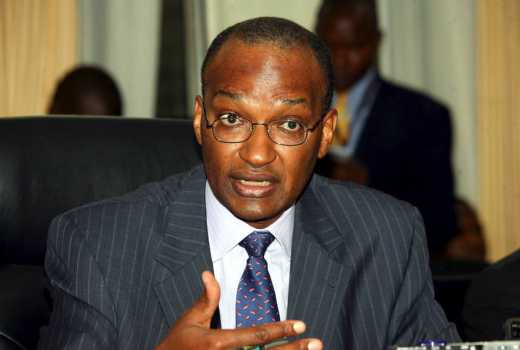Central Bank of Kenya – CBK Governor Patrick Njoroge has denied assertions by International Monetary Fund – IMF that the Kenyan Shilling (KES) is overvalued.
Njoroge has called the Washington based lenders assertions that the currency in East Africa’s largest economy is 18% overvalued, as “erroneous.” Njoroge retaliated with evidence that all mathematically tested models had shown that the margin of error could only stretch to 500 points or 5%.
“There is no single model that does the job and we have used several approaches. What we have seen is there is less than 5% to the extent of any misalignment,” he said at a press briefing by the CBK’s decision-making organ, the Monetary Policy Committee (MPC), in Nairobi.
IMF’s claims came in the wake of a fallout with the Kenyan Government after disagreements on the extension of a $1.5 billion (Sh150 billion) forex insurance programme. Following the lender’s decision to withdraw the precautionary facility that was tied to Treasury’s fulfilling of a promise to cut the budget deficit through, among other measures, a reduction in public spending, the Government declined to release the IMF’s assessment on the state of the economy.
This saw IMF unilaterally release the report, further worsening the bad blood between the two. Your opinion is valuable. Take this quick survey to help us improve the website and content In the report, IMF castigated Treasury’s debt management, which it said had exposed the country to currency and interest rate risk. It also claimed that the shilling was overvalued.
The CBK governor accused the Washington based lender of using unconventional models to price the shilling, resulting in the huge variation. Njoroge questioned why IMF applied the External Balance Assessment (EBA) which, according to him, was generally used for developed economies.
He said the model that was developed in 2013 and launched in 2015 had not been applied in an economy like Kenya. In fact, EBA, which takes into account a much broader set of factors— including policies, cyclical conditions, and global capital market conditions that may influence the current account and real exchange rate — has only been applied to South Africa on the continent.
“How many peer countries have they used the model on? We are being used as guinea pigs with this model,” said Njoroge, adding that the model’s limitations were well documented. The governor also took issue with IMF’s demand of more transparency on how the apex bank makes currency interventions. IMF had said that the Kenyan shilling risks being classified as “managed” rather than operating on demand and supply.
“Reflecting limited movement of the shilling relative to the US dollar, MCM’s (Monetary and Capital Markets’) 2018 report on exchange rate arrangement to be published in February 2018 will reclassify Kenya’s shilling from ‘floating’ to ‘other managed arrangement’,” said IMF. Njoroge said
CBK would only release data if it was no longer market-sensitive, adding that this was a global practice.
“We do not comment on currency interventions until we judge that it is no longer market-sensitive. Check anywhere, the Bank of England, check how much information they reveal,” he said.
The governor added that the interventions were not done with “favorite players in the dark”, but rather during open market operations with banks, which knew whenever CBK intervened.
He also added that Kenya was an open economy with no controls over current or capital accounts. The Central Bank, the governor said, operated a flexible forex market that did not target any particular rate but allowed the market to price it.
Source: The Standard

